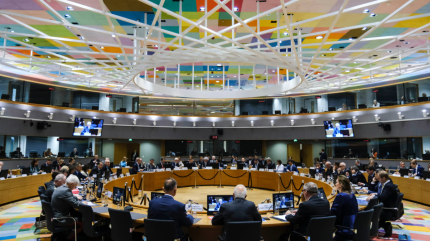
EU Defence Ministers agreed on 28 May 2024, to increase the number of the European Defence Agency’s (EDA) core tasks from three to five as part of the EDA Long-Term Review (LTR) 2024.
The adjustments will provide new support in engaging with the European military-industrial base, which has been engaged heavily in the defence of Ukraine, but the LTR stops short of describing a future of closer cooperation with Ukraine.
At the meeting of the Steering Board of the EDA it was agreed that the EU needs to dramatically step up its security and defence ambitions. The EDA added dedicated tasking on aggregating demand towards joint procurement and enabling collaborative defence research, technology, and innovation.
Under the 2024 LTR, the EDA can support MoDs in each step of the development and procurement of capabilities, or support the execution of a whole project, including off-the-shelf acquisitions.
The addition of LTR tasks in 2024 reflect deficits recognised in the collective response to the invasion of Ukraine as it highlighted issues in defence production and supply.
The most recent past LTR, from 2017, included tasks for identifying shared needs and priorities, harmonising requirements and ensuring interoperability, and the political task of voicing Ministries of Defence’s joint positions.
The announcement also held news for the participation of the EDA with Ukraine, stating it will “will strive to expand its cooperation with Ukraine as soon as conditions allow,” but the LTR does not detail what change in conditions in Ukraine expanded cooperation would be contingent on. A framework for greater cooperation was agreed by Ministers of Defence in 2021, but there is no mention of an update to these principals that is reflective of a changed threat landscape.
However, the LTR provides a clearer outlook on the reinforcement of its cooperation with Nato, with an administrative arrangement forthcoming in addition to the conclusion of an agreement for exchange of classified information.
Speaking at the Nato Parliamentary Assembly in Sofia on 27 May, Secretary General Jens Stoltenberg spoke of the long-term commitment of Nato to Ukraine, and gave voice to his hopes for a multiyear financial pledge from the allies: “The Ukrainians need more long-term knowledge, more predictability to plan and to invest, to ensure that they have the forces they need to defend against the Russian invaders, but also in the future to deter against future Russian aggression.”




